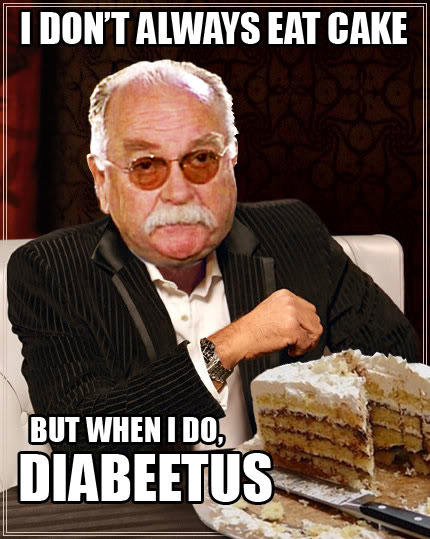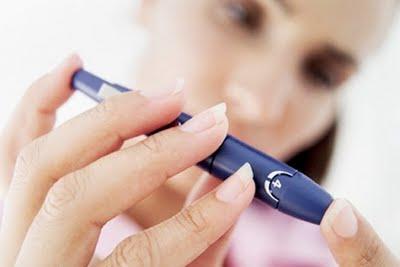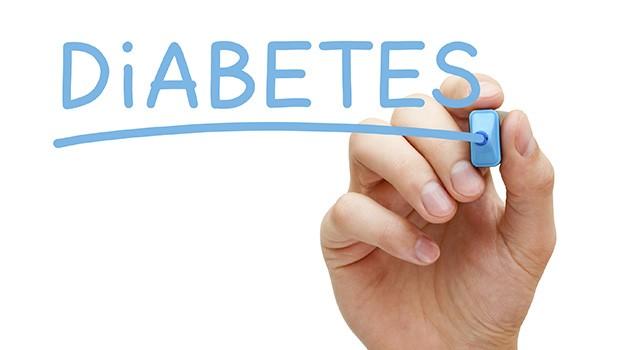
What do you think of when you hear the words: blood sugar, obesity, .and insulin? You think of diabetes right? Well they all are included in a diabetics vocabulary,but these words do not necessarily mean every diabetic has these issues, and not everyone who has these issues is a diabetic. As we will go through the mytake I will explain about three types of diabetes, and three types of what I call non diabetic conditions.
1. Type one Diabetes (juvenile diabetes)
This type of diabetes usually occurs in adolescent and childhood ages hence the name Juvenile Diabetes. People with this kind of diabetes have to have several daily Insulin shots including being tested often fot high sugar levels in blood and in urinne (which is called ketones). A high level of ketones in the.body can.result in a possibly fatal condition called Ketoacidosis. Symptoms of type 1 diabetes include:
Whole body: excessive thirst, fatigue, hunger, or sweating
Gastrointestinal: nausea or vomiting
Urinary: bedwetting or excessive urination
Also common: blurred vision, fast heart rate, headache, sleepiness, or weight loss. If you experience any of these symptoms you should consult your doctor. Type 1 diabetics do not produce insulin therefore insulin injections are required.
2. Type two Diabetes (Adult Onset)
This is the most common type.This type of diabetes is more or less based on genetics and/or lifestyle choices such as:being overweight,not getting enough exercise,having a family history, eating and consuming a high sugar diet etc... Unlike in type one Diabetes this can be controlled easier through diet,exercise,and proper medication.
This type of diabetes typically is more or less controlled by oral medications as the pancreas makes some insulin , but still not sufficient enough. Therefore some type two diabetics may never need insulin injections or may.not need them for.years to come. Type two diabetics also do not have to worry about ketones. Symptoms include: increased thirst, frequent urination, hunger, fatigue, and blurred vision. In some cases, there may be no symptoms.

3. Gestational Diabetes (Aka: pregnancy diabetes or type 3 diabetes)
This diabetes only occurs in pregnancy. Those who develop gestational diabetes are at higher risk of developing type 2 diabetes later in life.
In most cases, there are no symptoms. A blood sugar test during pregnancy is used for diagnosis.
Treatment strategies include daily blood sugar monitoring, a healthy diet, exercise, and monitoring the baby. If blood sugar is too high, medication is needed. In most cases this form of diabetes can go away after the baby is born.
Now let's go to the non diabetic conditions.
4. Pre diabetes (borderline diabetes)
This is A condition in which blood sugar is high, but not high enough to be type 2 diabetes. Without intervention, it's likely to become type 2 diabetes within 10 years.
Many people with prediabetes have no symptoms.
Progression from prediabetes to type 2 diabetes isn't inevitable. With lifestyle changes, weight loss, and medications, it's possible to bring a blood sugar level back to normal.
5. Hypoglycemia
Diabetics do often get hypoglycemic but not everyone who is hypoglycemic is diabetic. Diabetes treatment and other conditions can cause hypoglycemia.
Confusion, heart palpitations, shakiness, and anxiety are symptoms.
Consuming high-sugar foods or drinks, such as orange juice or regular soda, can treat this condition. Alternatively, medications can be used to raise blood sugar levels. It's also important that a doctor identify and treat the underlying cause.

6. Hyperglycemia
Again like Hypoglycemia you do not have to be diabetic to suffer from it.
Symptoms of high blood sugar. Short-term symptoms of high blood sugar include:
excessive thirst
excessive urination
increased urination at night
blurry vision
sores that won’t heal
fatigue
If you experience symptoms of hyperglycemia, it’s important that you check your blood glucose levels. Untreated high blood sugar can lead to acute complications, such as diabetic ketoacidosis, and chronic complications, such as eye, kidney, or heart disease and/or nerve damage.
Other complications from diabetes can include:hypertension,glaucoma and cataracts,cancers of all kinds, slow healing wounds, neuropathy which is loss of sensation in your extremities due to nerve damage, arthritis, slower healing of colds and flu, and many other health issues.
Every physical exam have your doctor test you and discuss your risk factots such as genetics and eating habits.
My grandmother had this disease for many years before passing away in 2013. Several people in my family have it. Hopefully my mytake will educate you on the signs and symptoms so you can be aware.
 Holidays
Holidays  Girl's Behavior
Girl's Behavior  Guy's Behavior
Guy's Behavior  Flirting
Flirting  Dating
Dating  Relationships
Relationships  Fashion & Beauty
Fashion & Beauty  Health & Fitness
Health & Fitness  Marriage & Weddings
Marriage & Weddings  Shopping & Gifts
Shopping & Gifts  Technology & Internet
Technology & Internet  Break Up & Divorce
Break Up & Divorce  Education & Career
Education & Career  Entertainment & Arts
Entertainment & Arts  Family & Friends
Family & Friends  Food & Beverage
Food & Beverage  Hobbies & Leisure
Hobbies & Leisure  Other
Other  Religion & Spirituality
Religion & Spirituality  Society & Politics
Society & Politics  Sports
Sports  Travel
Travel  Trending & News
Trending & News
Most Helpful Opinions